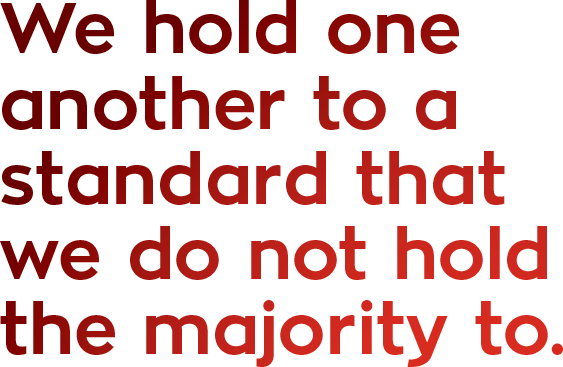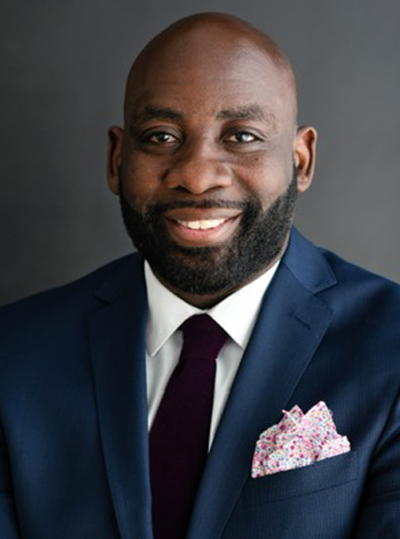


Their process for receiving orders lacked structure, so there were a couple of us who received the wrong order. And though the food was good, the wait was longer than one would expect. Overall it was a good experience, and I would patronize the establishment again. However, I overheard a group of young adults in the booth behind us, lamenting the long wait time and the fact that their orders were wrong. They went into a lengthy dialogue about how inferior black businesses can be run. Their conclusion: they would never return there again.
Sure, they should expect excellent service. My contention with them is the assumption that the flaws in service were the result of the restaurant being black-owned.
The flaws were not because the owners of the restaurant were black, but rather because the owners of the restaurant were new to the business. The irony is that I didn’t hear any of the white customers draw such a harsh conclusion.
However, the flaws in a black-owned business are met with the highest level of critique. We only give each other one shot. We enter one another’s establishments examining things through skeptical and critical lenses, expecting the worst, and we hold one another to a standard that we do not hold the majority to.
How often has the food order been incorrect at your local Chick-fil-A or IHOP? How frequently have you been followed or watched like a hawk because of the color of your skin in some high-end clothing establishment? How frequently have you been treated rudely at a dry cleaners or gas station run by a white person, or someone from an immigrant community? How frequently have you walked into a white-owned establishment and been overlooked or treated as invisible? And yet, somehow we continue to patronize their businesses. We overlook their personnel or system flaws, while functioning as repeat customers.

The flaws we often assess to black businesses are the flaws that are frequent in new businesses. New businesses take a while to perfect certain systems. This is a science that many of our people are still learning. There is a science to customer service. There is a science to handling disputes. There is a science to record keeping. There is a science to organizational management. There is an institutional knowledge that has been passed down for generations in certain long-term, Caucasian-run establishments. Institutionally, they have a head start. In many ways, we have just joined the race in the last 40 years.There is a psychological barrier that must be overcome. We distrust one another. We lack value for what our community produces. We overlook the flaws of everyone else, and consistently call out our own.
The flaws we often assess to black businesses are the flaws that are frequent in new businesses. New businesses take a while to perfect certain systems. This is a science that many of our people are still learning. There is a science to customer service. There is a science to handling disputes. There is a science to record keeping. There is a science to organizational management. There is an institutional knowledge that has been passed down for generations in certain long-term, Caucasian-run establishments. Institutionally, they have a head start. In many ways, we have just joined the race in the last 40 years.


If two men are in a race, and one man has a 50-yard head start in an 80-yard race, you would expect him to get to the finish line first. It does not mean he is faster or superior. It just means he had a head start. When it comes down to business and management, other cultures have had a head start. It doesn’t mean they’re faster or better, it just means they’ve been running the race a little longer.


Local TV Networks:
Atlanta, GA | WATC-TV Channel 57
Huntsville, AL | WAAY-TV Channel 31
Memphis, TN WANT-TV Channel 24
Montgomery, AL |WNCF-TV Channel 32
Phoenix, AZ | Good News TV • mygoodnewstv.com
Hope Channel
Three Angels’ Broadcasting Network (3ABN)
Word Network
Internet
YouTube – YouTube.com/c/breathoflifetv
Facebook – Facebook.com/breathoflifetv
BOL Website – breathoflife.tv/videos/